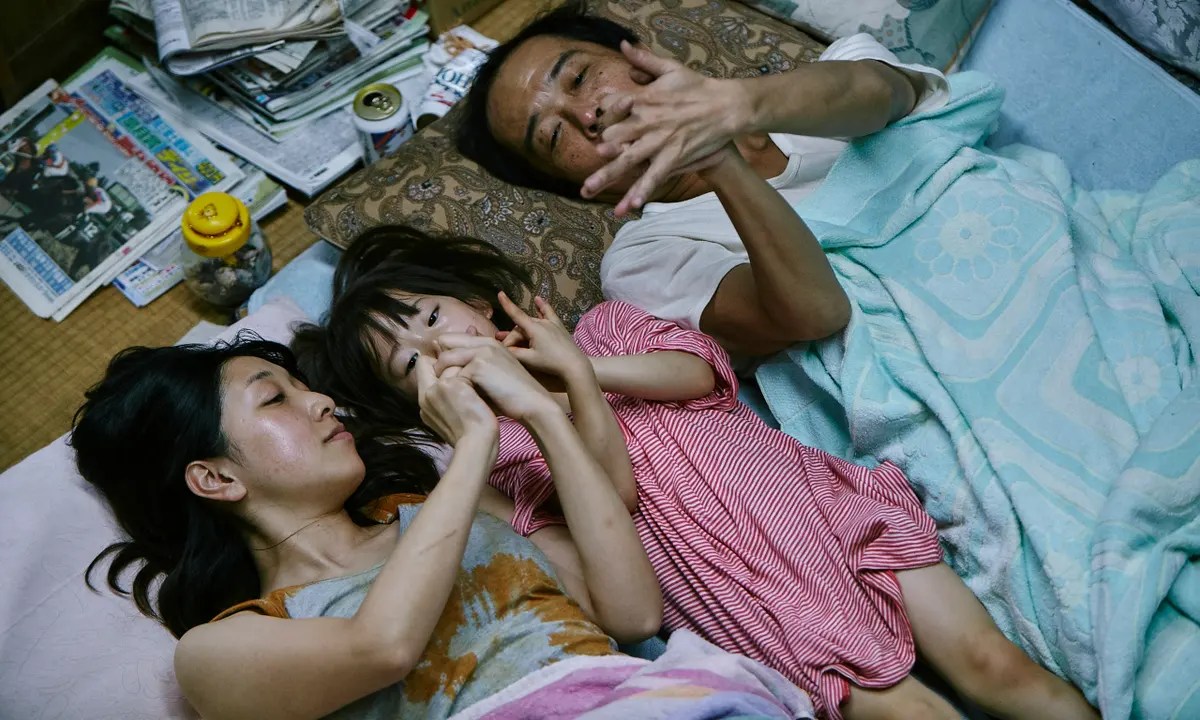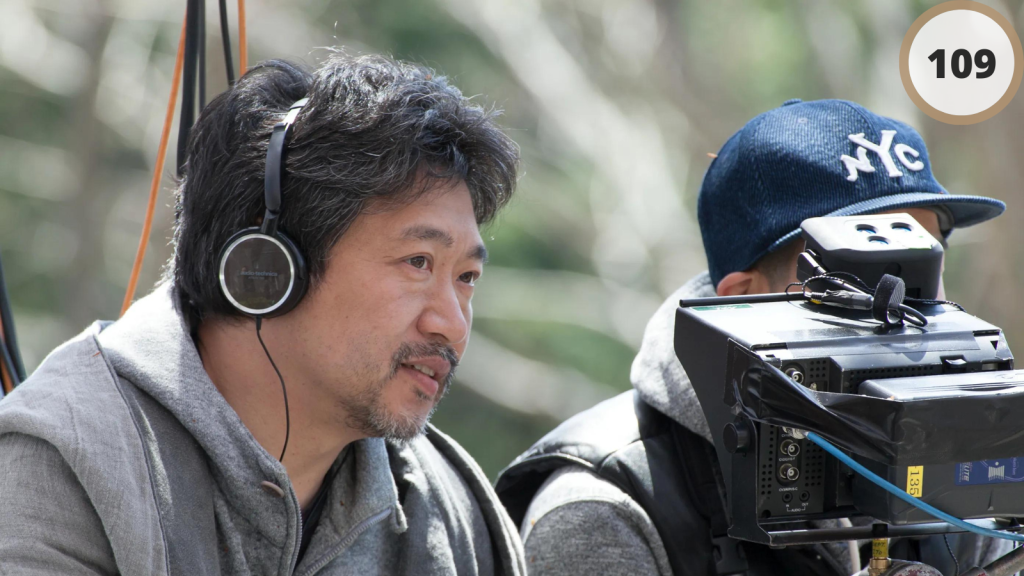Hirokazu Kore-eda, a critically acclaimed Japanese director, is best known for his profound exploration of familial bonds, societal norms, and the everyday nuances of life. His films, such as Nobody Knows, Still Walking, and Shoplifters, delve into the intricacies of human relationships and societal connections, offering a resonant perspective on contemporary Japanese society.
Kore-eda’s background in documentary filmmaking and his commitment to writing his screenplays lend his films a distinct slice-of-life authenticity. Koreeda began his career in television before transitioning into cinema to make films that delve into the subtle textures of daily existence. This inclination towards realism is evident in his work, as he transforms everyday situations into deeply meaningful narratives through the power of his observant lens and evocative storytelling.
A distinctive aspect of Kore-eda’s filmmaking is his ability to draw naturalistic performances from his actors, including children. This skill enhances the credibility of his characters and contributes significantly to the emotional resonance of his narratives. Simultaneously, Kore-eda’s films are aesthetically akin to the works of Yasujirō Ozu, although he claims to be more similar to Ken Loach. The shared pacing, framing, and thematic focus on domestic dramas create a sense of tranquillity that delicately underlines the unfolding narrative.
Everyday Empathy
Despite their gentle and humane nature, Kore-eda’s films often subtly critique societal norms and expectations in contemporary Japan. This social commentary, woven into the fabric of his narratives, offers a critique of society without ever being didactic. In Shoplifters, for instance, Kore-eda subtly challenges conventional definitions of family and questions the societal structures that often fail the marginalised.
Internationally recognised, Kore-eda’s films have garnered numerous accolades, most notably with Shoplifters winning the Palme d’Or at the 2018 Cannes Film Festival. His distinct style and thematic explorations have inspired filmmakers worldwide, extending his influence beyond Japan’s shores. His keen observation of life and profound exploration of familial and societal bonds have solidified his place in cinema, earning him recognition as one of the most influential figures in contemporary filmmaking.

Hirokazu Koreeda (1962 – -)
Calculated Films:
- Maborosi (1995)
- Without Memory (1996)
- After Life (1998)
- Nobody Knows (2004)
- Still Walking (2008)
- Like Father, Like Son (2013)
- Our Little Sister (2015)
- Shoplifters (2018)
Similar Filmmakers
- Ken Loach
- Kon Ichikawa
- Mike Leigh
- Mikio Naruse
- Miwa Nishikawa
- Naomi Kawase
- Nobuhiro Yamashita
- Nuri Bilge Ceylan
- Ryusuke Hamaguchi
- Shinji Aoyama
- Tran Anh Hung
- Yasujiro Ozu



Hirokazu Koreeda’s Top 10 Films Ranked
1. Nobody Knows (2004)
Genre: Drama, Family Drama

2. Still Walking (2008)
Genre: Slice of Life, Family Drama, Drama

3. Shoplifters (2018)
Genre: Drama, Family Drama

4. Maborosi (1995)
Genre: Psychological Drama

5. After Life (1998)
Genre: Low Fantasy, Drama

6. Like Father, Like Son (2013)
Genre: Drama, Family Drama
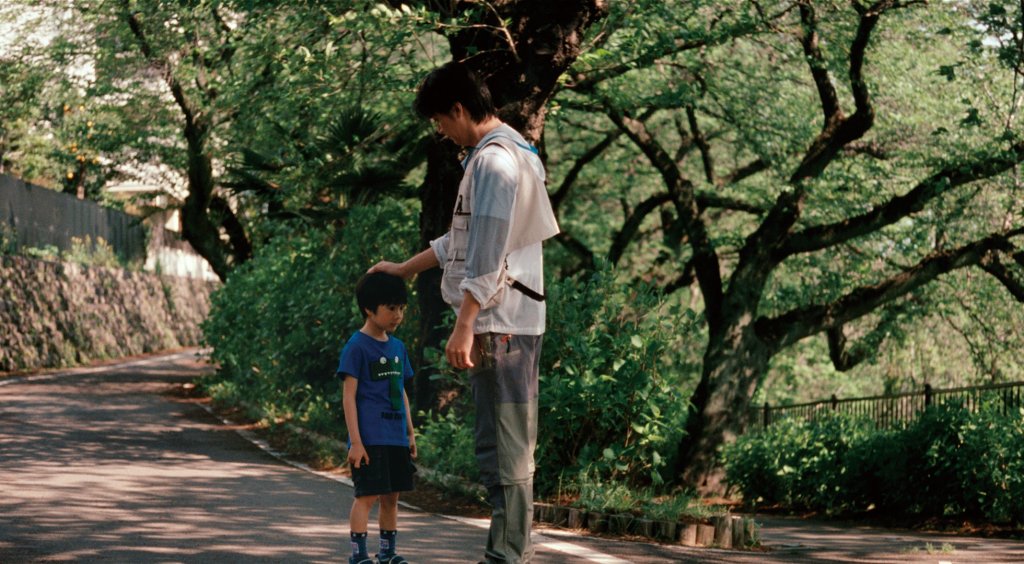
7. Our Little Sister (2015)
Genre: Slice of Life, Family Drama, Drama
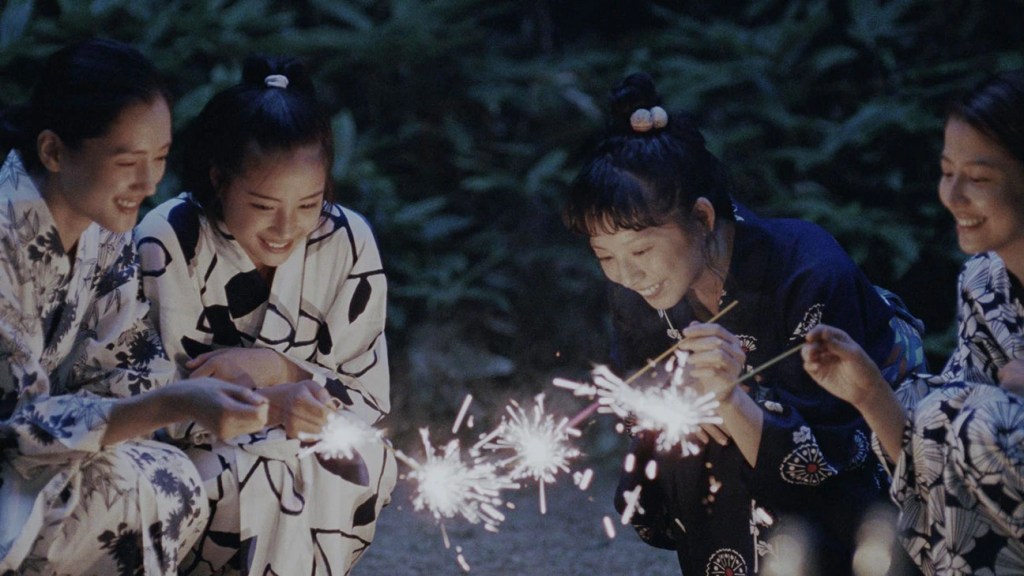
8. Without Memory (1996)
Genre: Biography Documentary, Medical Documentary

9. I Wish (2011)
Genre: Coming-of-Age, Drama, Family Drama

10. After The Storm (2016)
Genre: Drama, Family Drama
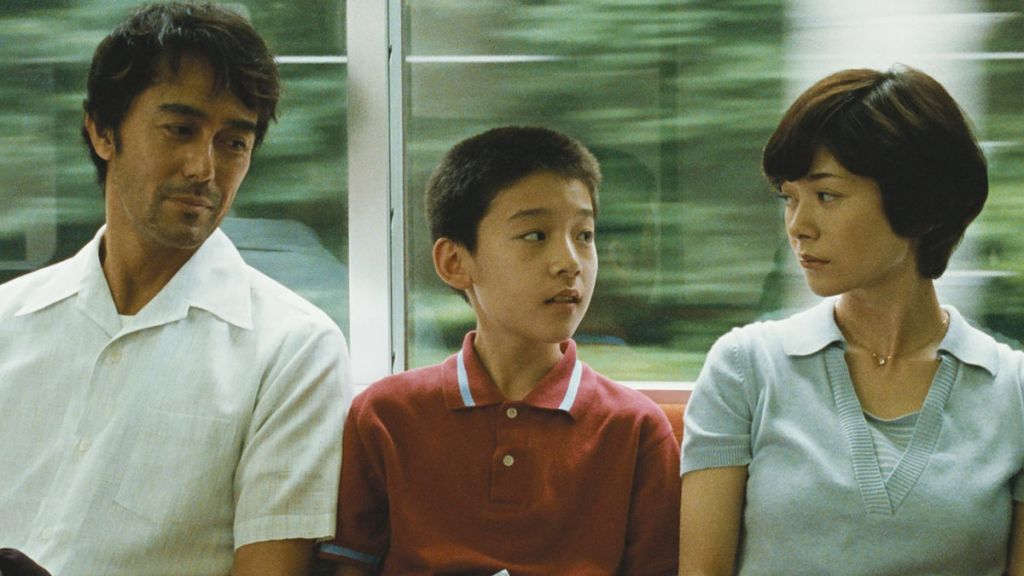
Hirokazu Koreeda: Themes and Style
Themes:
- Family Dynamics: Kore-eda often delves into the complexities of family relationships. His portrayal of family isn’t just confined to biological connections but extends to chosen or makeshift families.
- Children’s Perspectives: Many of his films view the world through the eyes of children, highlighting their innocence, resilience, and the profound insights they offer.
- Life and Death: He examines the transient nature of life and the inevitability of death, exploring how characters come to terms with mortality.
- Memory & the Past: Kore-eda’s narratives frequently focus on personal memories and their impact on the present. The selectivity and unreliability of memory are recurring elements.
- Societal Commentary: He subtly critiques societal norms, particularly Japanese society’s expectations, and how they influence individual choices.
Styles:
- Naturalism: Kore-eda’s films are marked by a deep sense of realism, often using natural light, real locations, and minimal makeup to maintain authenticity.
- Pacing: His films typically embrace a slower, contemplative pace, allowing viewers to immerse themselves in the story’s emotional depth.
- Documentary Feel: Owing to his background in documentary filmmaking, many of his films have a documentary-like observational approach, capturing raw human emotions.
- Subtle Storytelling: Kore-eda avoids dramatic confrontations or grand moments. Instead, he leans on everyday occurrences to drive the narrative forward.
- Intimate Cinematography: Close-ups and medium shots are frequent, creating a sense of intimacy and connection with the characters.
Directorial Signature:
- Non-Professional Actors: Kore-eda occasionally employs non-professional actors, valuing the raw and unpolished emotions they bring to the screen.
- Collaborative Scripting: He often encourages his actors to contribute to the dialogue, allowing for more natural and improvised interactions, which lend a genuine quality to his films.
- Symbolism: Kore-eda often uses visual motifs and symbols to underline his themes. For instance, recurring images like clouds, beaches, or food items serve as metaphors or symbols in his narratives.
- Humanity and Empathy: Above all, Kore-eda’s signature lies in his deep empathy for his characters. Regardless of their flaws, he paints them with a tender, compassionate brush, urging viewers to connect and empathise.
Hirokazu Koreeda: The 109th Greatest Director



